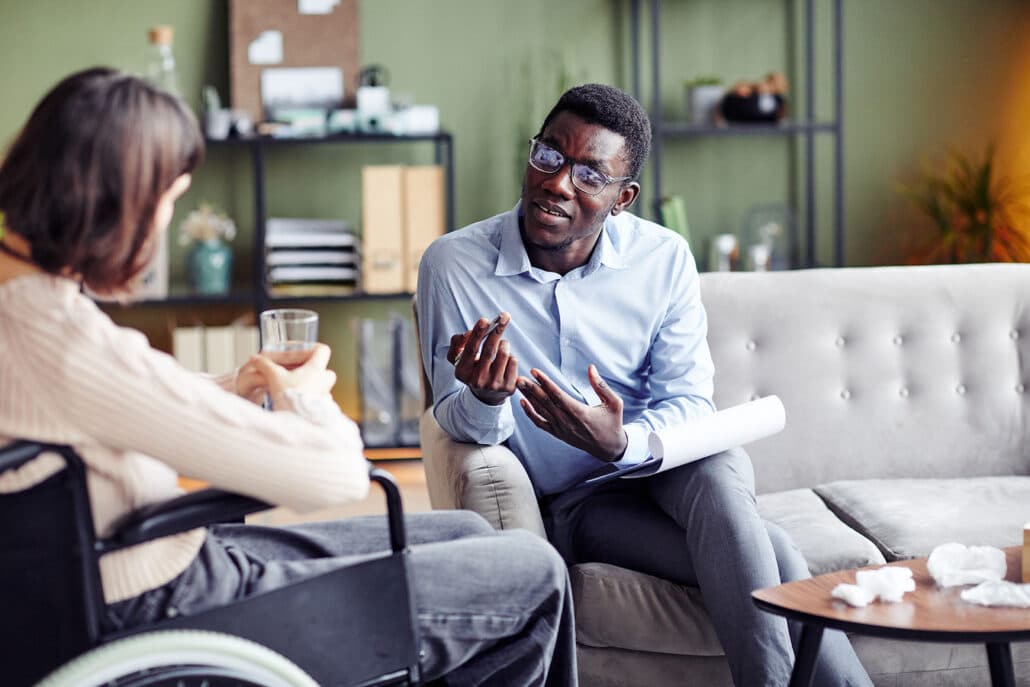Are you worried about developing a drug or alcohol addiction? The truth is that there have been more than 700,000 overdose deaths since 2000, and 19.4 percent of the United States population has tried illicit substances at least once in their lives. When alcohol and tobacco are included in the addictive substances statistics, more than 60 percent of Americans are addicted, according to NCDAS. The good news is that you can learn how to avoid drug addiction with these tips.

Table of Contents
- 1 1. Know Your Family History
- 2 2. Seek Mental Health Help if You Need It
- 3 3. Just Say No to Peer Pressure
- 4 4. Take Prescribed and OTC Meds as Directed
- 5 5. Learning How to Avoid Drug Addiction Means Educating Yourself
- 6 6. Take Care of Your Physical Health
- 7 7. Take Care of Your Mental Health
- 8 8. Take Me Time and Don’t Feel Ashamed
- 9 9. Develop Good Coping Skills
- 10 10. Do Your Best to Avoid High-Stress Situations
1. Know Your Family History
If you want to take steps and learn how to avoid drug addiction, pay attention to your family history. The truth is that substance abuse has a bad habit of running in families. While your family may not speak of it, you can pay attention. Does Aunt Jane always have a cigarette in her mouth? Does Uncle Joe always have a beer in his hand? Does your cousin talk about this miracle substance that helps her get the house cleaning done super fast? The truth is that these individuals may all be addicts. Aunt Jane’s probably addicted to nicotine. Uncle Joe may be a high-functioning alcoholic. The cousin may be addicted to meth or cocaine. If you see signs of this or hear your immediate family members talk about another family member’s addiction, you can assume that addiction runs in your family, and you are predisposed to become addicted yourself.
2. Seek Mental Health Help if You Need It
Do mental health issues run in your family? Individuals who have family members with mental health issues are more likely to develop issues themselves. If you feel depressed, anxious or mentally out of control, seek the services of a licensed mental health provider. Many people with substance use disorder started by accident but kept using in order to self-medicate underlying mental health issues. If you want to avoid addiction, it’s best to seek treatment for any mental health issues you may have.
3. Just Say No to Peer Pressure
Peer pressure is a big factor when it comes to trying new things. After all, if all your friends are into yoga, Pilates or long-distance biking, you’re more likely to try those things yourself. Of course, trying a new hobby or exercise routine isn’t a bad thing, but if those same friends are pressuring you into having a drink, trying vaping or taking this little pill that will help you avoid sleeping so you can study longer for your finals, you just need to say no and walk away.
If you become addicted to a substance, one of the things you’ll learn is how to avoid your triggers, and one of those triggers can be all those friends you hung out with to get high. It’s much easier to find new friends now than to beat an addiction and still have to find new sober friends.
4. Take Prescribed and OTC Meds as Directed
It goes without saying that you should only take medications that are prescribed to you by your doctor. Never take medications that are prescribed for someone else, and don’t accept or take mysterious pills from a friend or acquaintance that’s positive it’ll help you because it helps them. Only your doctor knows your medical history, and any medications prescribed to you are in the right dosages for the right times. If you are taking your medication correctly and it doesn’t seem to be working as intended, always talk to your doctor. They can prescribe a different medication or a different dosage or recommend another treatment option. Taking your prescribed medications in higher quantities can result in addiction to the substance.

5. Learning How to Avoid Drug Addiction Means Educating Yourself
One of the best ways to avoid addiction is to learn about it. In fact, it’s one of the first things individuals who enter substance abuse treatment learn. Take the time to learn how various substances affect the body and the mind, and how addiction changes the way the brain’s reward system works. You’ll also learn the signs of additions and some of the statistics.
6. Take Care of Your Physical Health
If your goal is figuring out how to avoid drug addiction, take care of your physical health by getting plenty of physical activity and the right amount of macro and micro-nutrients in your diet. Exercise can help you control your weight. It can help prevent or control certain chronic conditions, like high blood pressure, diabetes and arthritis. It can help improve your mood. It helps dissipate stress, and it boosts energy. You may also find yourself sleeping better. Eating a healthy, well-balanced diet can also help prevent or control certain chronic conditions, like heart disease and diabetes. It can also improve your mood and your energy levels. It can help your memory and brain health, and eating a balanced diet can even help you sleep better, which helps you feel refreshed in the morning. The truth is that if you already feel good, you’ll be less likely to take a substance that artificially improves your mood and causes you to feel less stressed.
7. Take Care of Your Mental Health
Even if you don’t have a diagnosed mental condition, it’s a good idea to monitor your stress levels and moods and take appropriate action when you do not feel mentally well. Everyone feels unhappy, angry, frustrated, depressed, stressed, anxious, overworked and underappreciated at some point in their lives. The trick is to recognize when you feel this way and take steps to lower your stress. This can mean going for a walk, taking a mental health day from work or seeking the services of a counselor to help you work through some immediate issues in your life so that you can move forward in a positive, healthy manner.
8. Take Me Time and Don’t Feel Ashamed
Learning how to avoid drug addiction means putting yourself first. If you’re always caring for other people or putting your work life and family’s life ahead of your own, you may be more stressed than you need to be. Remember to take time for yourself. This can mean going on a walk or a hike, participating in a hobby or going to the spa. Whatever you choose to do, make sure you take the time you need to rest, relax and recharge. When you’re taking care of yourself, you’ll be better able to take care of those around you.
9. Develop Good Coping Skills
It’s important to understand that life has daily stressors and learning how to avoid drug addiction means learning coping skills. The dog poo’d on the carpet. The coffee shop was out of your favorite flavor. Your boss doesn’t understand practical time frames, and that one obnoxious coworker is on your last nerve. For individuals with substance use disorder, their answer to dealing with daily life stressors is to have a drink, eat a pill or take a hit. While taking a substance may ensure you don’t care about what happened, it doesn’t deal with the cause. If the dog poo’d on the carpet, clean it up and put the dog outside if you have a fenced backyard. If the coffee shop is out of your favorite flavor, choose your second favorite. If work is being too demanding, research solutions and makes your case to your boss. If your coworker is on your last nerve, find a professional way to tell him or her to silence themselves. In addition to handling stressful situations at the moment, you can also find someone to talk to. Having a listening ear can help you process what just happened and help you develop solutions. You can also start exercising, practice meditation or yoga, and you can write down your thoughts and your feelings about a situation to help you process and learn from it.

10. Do Your Best to Avoid High-Stress Situations
Figuring out how to avoid drug addiction in your life means controlling the number of stressful situations you encounter. Take some time to do some internal reflection on the things that stress you out or provoke the worst stress responses. If you don’t like noise or crowds, do your best to avoid both. If you have a particular friend or family member that adds to your stress, limit your contact with them. It’s also helpful to know what you can and cannot handle. If you can’t handle another task or social obligation, say no and set boundaries. If you’re not sure, you can start a stress journal. In the journal, write down what stressed you and your reaction. Then, brainstorm possible solutions if you ever encounter that situation again. If you can’t avoid a stressful situation, reframe the problem, look at the big picture and adjust your standards.
By learning these tips on how to avoid drug addiction, you are taking control of your life, handling your stress and dealing with problems at the moment instead of letting them bottle up and boil over. If you find yourself needing help for substance use disorder so that you can take back control of your life, Long Island Interventions can help. Call us today so that you can start living a healthy, productive life!
Published on: 2022-05-26
Updated on: 2025-03-13

